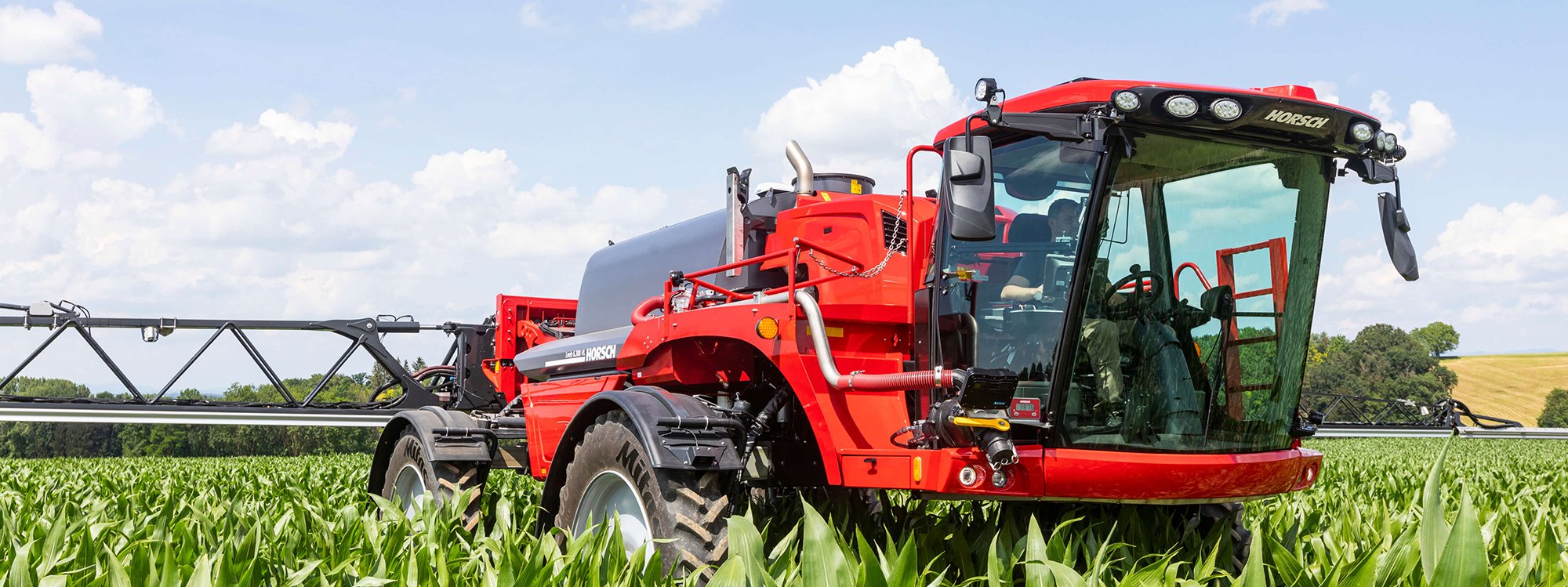1,000 tons per employee

The farm SC TCE 3 Brazi Insula Mare a Braila in Romania is the largest agricultural company in the European Union. It farms a total of 65,000 hectares, 57,000 of them on one site.

Dr. Lucian Buzdugan is the manager of the agricultural company. He talked to terraHORSCH about his cultivation concept.
The farm SC TCE 3 Brazi Insula Mare a Braila in Romania is the largest agricultural company in the European Union. It farms a total of 65,000 hectares, 57,000 of them on one site. Dr. Lucian Buzdugan is the manager of the agricultural company. He talked to terraHORSCH about his cultivation concept.
"It is our primary objective to first of all increase the yields in such a way that we harvest 1,000 tons of crops per employee and at the same time reduce the diesel consumption to under 50 litres per hectare. This can only be achieved by using agricultural machines with large working widths which, in addition, can carry out several working processes in one single pass. As HORSCH is a manufacturer with a long lasting experience in this sector, we got in contact with each other.

For mulch cultivating we use the cultivator Tiger 8 AS which has been specially adapted to our requirements. We combine it with our seed waggon SW 17000 so that beside loosening, incorporation of harvest residues and the consolidation of the soil, the Tiger can also apply fertilizer via a piping and fertiliser system (similar to the focus) we place phosphoric or nitrogenous fertiliser this way. The latter, however, only if nitrogen is used in a stabilised form.
What I like about the Tiger is that much more moisture remains in the soil than when using a plough or a disc harrow. The loosened soil is consolidated excellently and depth capillarity is restored. Thus, crops like rapeseed, wheat, winter or spring barley are optimally supplied with water. With the Optipack SD this works so well even on heavy soils that all our eleven Tigers are equipped with this packer.
For sowing we use a Pronto 12 DC which we appreciate very much due to its extraordinary capacity. In two tenhour working shifts we can sow approx. 200 hectares.

Like I have already pointed out the saving of diesel is extremely important for our farm. The Focus TD is a key machine and the trend-setting technology of strip cultivation. Thus, we are able to sow rapeseed after wheat in only one pass. We work with a row spacing of 36 centimetres and we sow at a depth of 2.5 to 3 centimetres. Two tine rows loosen the soil and form a ridge. Rapeseed is sown into a deeply loosened strip which has been freed from harvest residues and clods. More importantly, it is possible to apply fertiliser at two depths. We provide a starter depot of ten to 15 per cent of the total fertiliser quantity in the germination area, the remaining quantity is placed at a depth of 15 to 20 centimetres. Thus, the rapeseed root is attracted to grow downwards as rooting is crucial for a good yield especially in dry periods. We hope to benefit a lot from fertilisers with stabilised nitrogen. We, then, would be able to apply half of or even all fertiliser directly while sowing, as in regions with dry springs there is a risk that nitrogen that is applied on the surface reaches the roots too late or even not at all. Urea for example looses up to 50 percent of the effective nitrogen after 15 days without rain and temperatures of more than 12 degree Celsius.
We like working with HORSCH as this company has a dynamic that is unique in the market. What stands out remarkably is the personal commitment of the two brothers, Michael and Philipp Horsch. As they know the needs of soil and plant, they do anything to find technical solutions for an optimum plant development."
